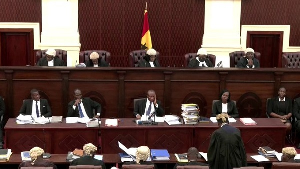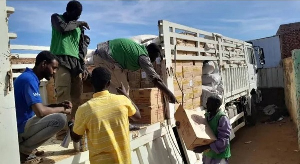The Ministry of Trade and Industry on Thursday launched the World Trade Organization (WTO) and ECOWAS Trade Ministers preparatory conferences slated for next month.
The WTO conference is to provide a forum for the ministers to exchange views and evolve strategies to promote Intra-African trade in the light of increasing importance of trade and trade-related issues in the new inter-dependent and globalised world economy.
The ECOWAS conference is to move the fast track agenda forward and to enable the private sector to discuss trade problems in the sub-region.
Mr Kwadjo Agyepong, Acting Director at the ministry, said at a media briefing in Accra on Thursday that the conference would harmonise African countries' views to be presented at the WTO meeting scheduled for Qatar later in the year.
The Accra conference, scheduled for October 14 to 17, will be attended by, Ghana, Nigeria, Uganda, Eritrea, Madagascar, Mauritania, Senegal, Kenya and Cote d'Ivoire.
Mr Agyepong said the general impression among African countries after the Uruguay Round of Multilateral Trade Negotiations (MTN) is that they might have entered into commitments and agreements without adequately appreciating their implications.
Other concerns are that MTN failed to address the concerns of weaker trade positions of developing countries in the global economy especially rules concerning agriculture, which are discriminatory against developing countries.
"These concerns have given rise to fundamental questions regarding the future direction of WTO and the multilateral trading system itself."
Mr Agyepong said the conference would also promote the involvement of the private sector in the activities of WTO and deliberate on negotiations on agriculture and services, industrial market access, trade facilitation, and systemic concerns about WTO's operation.
Other areas are dispute settlement provisions, support for sustainable development, technical assistance and capacity building, transparency in government procurement, and implementation of existing agreements.
Click to view details



Business News of Saturday, 29 September 2001
Source: GNA
















